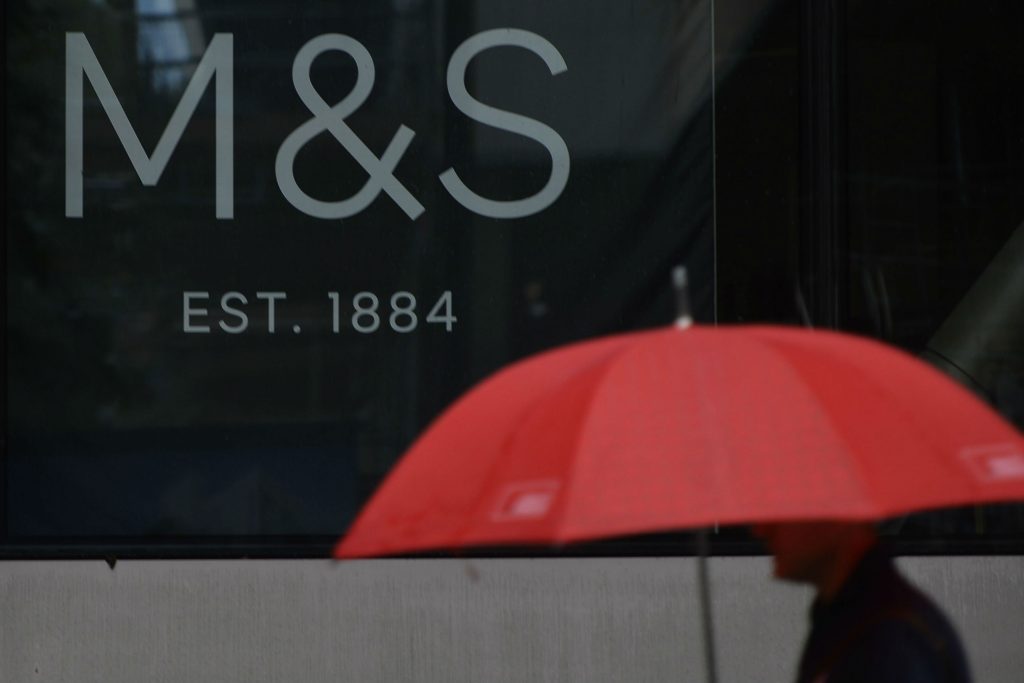In recent years, many premium retailers have struggled to drive sales, particularly as shoppers have become price-conscious in the wake of the Covid-19 pandemic.
Although the challenges faced by many retailers may have been exacerbated by the crisis, many have actually been struggling for some time, whether it’s because of lack of digital or in-store investment, or lack of originality of products on offer.
John Lewis, a retailer that has certainly felt its challenges accelerated by the pandemic, released an own-brand range of products earlier this month with the aim of offering customers “quality and style at everyday prices”. The new Anyday collection comprises of 2400 products across homewares, technology, baby care and baby clothing.

The department store chain said Anyday was its “most affordable” own-label brand yet. It said prices, on average, were 20 per cent lower compared to existing own-brand prices, while some are 40 per cent cheaper. The range also marked “a step-change in the modernising of our brand and offers customers John Lewis quality at prices they wouldn’t expect”, according to John Lewis executive director Pippa Wicks.
This is one of many initiatives brought forward by John Lewis as part of a wider turnaround strategy being undertaken by parent company John Lewis Partnership. Other hallmarks of the turnaround include plans to overhaul its high street presence by opening mini John Lewis stores within 331 Waitrose supermarkets within the next 12 to 18 months, while also reducing the retail footprint of existing John Lewis stores by converting some store space into rental property.
As part of its revised strategy, John Lewis has already said it would focus on its strengths such as homeware, technology, baby care and baby clothing. So it comes as no surprise that the initial Anyday range includes products for the bedroom, dining room, living room, kitchen, bathroom, nursery, home office and outdoor.
And after recently closing another eight John Lewis stores, bringing its total store closures within the last 12 months to 16, it may seem like John Lewis is hoping the Anyday brand could help revive its fortunes.
“The new range will no doubt allow John Lewis to reach out to a slightly different customer and broaden their customer base,” The Resilient Retail Club founder Catherine Erdly said.
“It also allows them to offer some lower price point products without diluting their core range and in an engaging way.”

On the other hand, Melanie Welsh, founding partner of strategy and planning practice Strat House, warned that John Lewis risked altering its brand image with the new value range.
“John Lewis has positioned itself as being ‘never knowingly undersold’ yet on the surface that are doing exactly that: underselling their own products,” she said.
“The approach seems to be an expansion of the ‘Home’ range. But John Lewis is, and still must be, an aspirational brand.
“There can be some great value pieces in amongst the offering, but these should not overwhelm the core offering.
“The introduction of over 3000 products in the first year makes it feel like there’s a risk that could happen.
“This will likely be the John Lewis version of Waitrose Essentials. But the weekly supermarket shop is just not analogous to the highly emotional areas of furnishing your first home or preparing for the arrival of a baby.”
John Lewis is not alone in its value venture. Lifestyle retailer Joules recently increased its discount offering after it was forced to shut its stores as part of lockdown. Although it didn’t launch an own-brand value range, the retailer attempted to lure shoppers with its discounted clothing.
However, Joules said the increased discounting affected trading, with group revenue dropping 15.3 per cent to £94.5 million in the 26 weeks to November 29. Earlier on in 2020, fashion retailer French Connection topped the list of the biggest discounters, along with Miss Selfridge – which at the time had been part of Sir Philip Green’s Arcadia Group.
Covering the two-week period from May 20 to June 2, French Connection was found to have 90 per cent of all online clothing discounted, data experts LovetheSales.com found. The average discount on a French Connection sale product was 52 per cent.
This may have adversely affected the retailer, after it saw group revenue fall 53 per cent year-on-year to £23.9 million in the first half of the year to July 31. Overall, French Connection made a £12.2 million underlying loss in the first six months of 2020, compared to a £3.6 million loss the same time a year before.

In contrast, Marks & Spencer – which has also seen its clothing and home department struggle amid Covid-19 – has signed deals with premium retailers Phase Eight, Joules, Hobbs and Seasalt. This means it will sell clothes by the brands on the M&S website and within M&S stores. The deal came after M&S bought premium fashion retailer Jaeger out of administration for £5 million in January.
M&S chief executive Steve Rowe explained the rationale behind teaming up with and buying premium brands: “M&S wants to build a curated set of brands and merchandise largely for our online business but also through filling some of that excess space we have in stores.”
Retail expert Nelson Blackley said M&S was a classic case of an established retailer with an aging customer base and, desperate to attract a younger demographic, introduced products such as skinny jeans.
“Not only did this fail to attract new, younger shoppers, it also confused existing customers, and reduced the space and choice they had for products they might want to buy,” he told Retail Gazette.
Meanwhile, Welsh said Jaeger “played with ‘value’ offerings and discounting in the years running up to its M&S rescue and frankly, it tanked”.
“The retailer lost sight of its consumers and therefore its relevance,” she added.
“Its core customers left for brands that could offer the quality, and contemporary style, they sought – and it became a brand for people seeking discounts, regardless of style or quality.”
Erdly warned that John Lewis’ value strategy was “risky” but made sense as it has a breadth of product already.
“Premium retailers like Jaeger and French Connection will be focusing more on making their core offering as exciting as possible as opposed to bringing in a lower price range,” she said.
“John Lewis is no doubt conscious of the fact that a large number of their customers are going to be more price conscious at the moment and offering a lower price range like the Anyday range.
“This will allow them to attract that customer in without having to resort to discounts which became a real problem for Debenhams and House of Fraser where they seemed to be selling the majority of their products on discount so in that way the Anyday range seems like a sensible attempt for John Lewis to reach a new more price conscious customer.
“Whether or not it’s enough to turn the business around remains to be seen, the problem with lower-priced ranges is that you have to sell more to get the same revenue that you had previously and they will need to watch very carefully that the newer price range doesn’t cannibalise sales from their more expensive products.
“The worst-case scenario would be if they had the same number of customers and visitors but the customer was now trading down to lower-priced products.
“What they will be hoping to see is that they are attracting a new customer or to improve their customer conversion so the percentage of people who are buying when they come in.”
“Anyday allows John Lewis to offer lower price point products without diluting its core range”
Catherine Shuttleworth, chief executive and founder of retail agency Savvy, said the challenge with launching a value brand was that it can encourage existing shoppers to trade down from higher margin products they would have been happy to buy before.
“John Lewis say that they want shoppers to do more of their shop at the partnership and not shop at other retailers such as Ikea and Dunelm and that is why they’ve launched it,” she explained.
“The challenge will be how they get shoppers that are not John Lewis shoppers to look at the range and shop higher margin areas of the total brand offer rather than just cherry pick these products.
“Given that many home owning shoppers actually have significant built up savings that they want to spend it is certainly a time where we might actually see shoppers happy to pay for product that they want and by doing so support margin growth for retailers so the timing of the launch of Anyday is interesting.”
Blackley argued that the Anyday range did not offer “sufficient unique product gaps in these core ranges that haven’t already been filled by others or have been tried and failed”.
“Although one of the founding principles of John Lewis was offering value for money, and the company claim that this move is reaffirming their commitment to this concept, there is a real risk it might just highlight that much of their existing own-brand products don’t offer value for money,” he told Retail Gazette.
“Although launching ‘basic’ or ‘essential’ products ranges is a tactic that all the grocery multiples have used over the past few years – primarily to combat the growing threat of Aldi and Lidl – they also already have a much wider range of customers and so are looking to prevent them switching to grocery discounters, rather than attracting a broader customer base.
“One of the established appeals of John Lewis to their existing customer based is that the quality of their John Lewis branded products has, at least until recently, been reflected in their in-store experience and customer service.
“Adding thousands of more basic, and lower priced products won’t help re-establish that important link, which many feel has been lost over the past decade.”
Although the new Anyday range might be designed to cater for a broader group of shoppers, retailers have always found it challenging to widen their customer base by changing or extending their product offering. It is easier to encourage existing customers to buy more.
John Lewis may need to focus on demonstrating relevance to younger customers through a deeper understanding of their needs. Taking this approach, in preference to quick-fix discounts, could potentially bring new shoppers on board for the long-term.
Yet by introducing a new and affordable range, John Lewis is opening itself up to a wider audience with a big interest in interiors, whether that’s revamping their bedroom within the family home or trying to settle into their student flat.
Click here to sign up to Retail Gazette’s free daily email newsletter


















